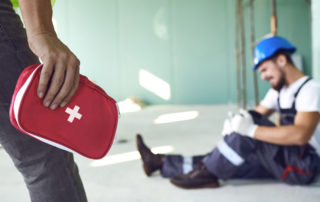The Employer Role | Mental Health During COVID-19
The impacts of the COVID-19 pandemic will affect employees well beyond the immediacy of the initial crisis. As an employer, you have a unique ability and responsibility to manage your benefit providers, such as Employee Assistance Programs (EAP) and health insurance plans to ensure your workers have access to the help and support they need. Having your workers know you are here to support them through these difficult times can make a world of difference for their mental and physical health. Your Human Resources team and supervisors can help make this difference a reality.
Prompt Reporting of Employment Practices Liability Claims
Allegations of harassment, discrimination, retaliation, and failure to adhere to minimum wage and overtime rules is a nightmare for any company. Lawsuits brought by employees represent one of the most common types of litigation faced by employers of all sizes.
3 Employee Wellness Trends to Watch in 2021
After a year that was turned upside down by the COVID-19 pandemic, many aspects of the workplace have changed, including employer-sponsored wellness programs. Prior to the pandemic, employers were already making a shift to the way they viewed and implemented wellness initiatives at their organization. Some of these changes included focusing on holistic well-being and bolstering mental health offerings.
Workers’ Compensation Trends to Watch in 2021
Not only is workers’ compensation coverage required in most states, but it also plays a major role in connecting injured employees to the care they need to return to work as quickly and safely as possible. That’s why it’s crucial for your organization to develop an effective workers’ compensation program.
Return to Work Program
Workplace accidents are unfortunate events that can disrupt both your physical and financial well-being. In the event of a work-related accident, our return to work program will help you transition back into a productive role as you recover from your injury.
Difference-in-Conditions Insurance
These days, floods, earthquakes and similar catastrophes are common threats to a business’s property. In fact, according to the Insurance Information Institute, natural disasters cause billions of dollars in property losses in the United States each year.






